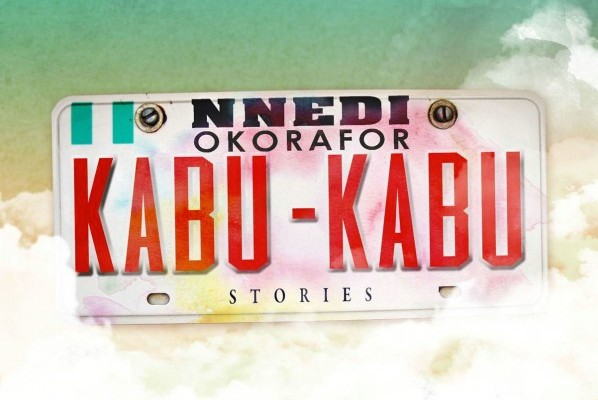Pub. Date: October 2, 2013. Prime Books. 264 pp. Buy Paper Back and Kindle
Kabu Kabu is a pidgin term for those dodgy taxis operating cheaply in many parts of Nigeria. And as the book jacket says, they generally get you where you need to be, one way or the other. A fitting name then for Nnedi Okorafor’s first short story collection, as it takes you on a magical journey of twenty-one stories and leaves you, at its end, where you need to be.
But where is that exactly?
Drawing from her own rich dual heritage, Okorafor offers an array of fantasy and science fiction based on dual identities, African folklore and mythology, the place and vulnerability of women in traditional cultures, and the politics of being Nigerian.
Some of the stories are obviously excised pieces of larger stories set in larger worlds. They are little tasters, small chops, to get you ready for Okorafor’s novels. I guess this is intentional and in some places, they work very well such as in the excellent ‘The Winds of Harmattan’.
Some of the stories are wonderful stand-alones that cut right into the established speculative fiction genre and unapologetically jam pure, unadulterated Africanness into them.
The collection opens with the somewhat unexpected ‘The Magical Negro’”which isn’t much of a story but is what I would call a literary dirty slap – a trope attack, reminding you exactly where this collection wants to take you.
The next story, ‘Kabu Kabu’ is a novella co-written with Allan Dean Foster in which a woman heading from Chicago to her village for her sister’s wedding enters a Kabu Kabu. Before long, the driver starts talking trash and picking up other passengers – normal Kabu Kabu wahala. The issue is these other passengers are masquerades, vampires, spirits, ojuju and much more. Her trip becomes a bizarre, awkward journey that I think plays as a metaphor for how a Nigerian in diaspora might feel returning to a place where spirits are as real as an iPhone5 – a common theme in Nnedi’s work.
Another common theme in the book is the place of women in African society. The women in ‘Kabu Kabu’ are often restricted in traditional, patriarchal cultures which they frequently subvert (‘The Palm Tree Bandit’ sees a woman secretly tapping palm trees) or actively resist (In ‘How Inyang Got Her Wings’, the eponymous Inyang , a windseeker from Nnedi’s larger body of work, is forced to flee her home because of a series of complexities regarding her puberty and society.)
Unsurprisingly, my favorite stories in the collection are the ones that lean more toward science fiction than fantasy. This is a personal preference; I love science fiction for its power of projection – of taking technology and extrapolating it, as well as examining its effect on people. This is done expertly by Okorafor in ‘The Popular Mechanic’, and ‘Spider The Artist’. My two favourite stories in the book. They both deal with the impact of the oil industry on locals living in the Niger Delta.
I also immensely enjoyed the past-life love story “Asunder”, the strange of Niger Delta militants “Icon,” the magically realistic political thriller “Bakasi Man,” the post-apocalyptic ‘Tumaki” and the almost obligatory, Nigerian-author civil war story ‘Biafra’, which are all stories with endless merits, written in Okorafor’s trademark tight prose – short sentences, smooth exposition and powerful imagery.
If there is anything to complain about in the collection, it is that Okorafor largely neglects the very rich mythologies of other tribes in Nigeria. (Although, there is a small nod to the Yoruba Orishas in ‘Tumak,“the portable device used in this post-apocalyptic world is called an e-legba as reference to Elegba, an Orisha psychopomp with many manifestations). It’s a very minor complaint, but I believe it is a valid one.
There are also some typographical errors which distracted from the reading experience. For writers, typos are a necessary evil and we trust in editors and proof-readers to deliver us from them, so one cannot really blame Okorafor for this.
I’ve been talking about the stories that make up the journey of this book, but now, I suppose I should go back to Kabu Kabu as a whole and where it’s supposed to take you.
Octavia Butler, one of the most influential African-American female science fiction writers was once asked, “What then is central to what you want to say about race?” Butler’s response was, “Do I want to say something central about race? Aside from, ‘Hey we’re here!’?”
And that is where I believe Okorafor’s ‘Kabu Kabu’ takes you with her skillful balance of characters, plot, setting, and themes, not in terms of race as with Butler, but in terms of identity and gender and African stories. It lets you know that speculative fiction is not the exclusive realm of the white man – the oyibo. It lets you know that Nigerians, Africans, and women are here. They have fantastic stories to tell, they imagine wonderful and strange futures. It says, “We are here”, that you don’t need to be a man to embark on the hero’s journey, that even a Nigerian mechanic can become a cyborg, and that a young African girl can go on an epic quest to discover her purpose in the skies. It takes you to a place that says that African dreams and fantasies and futures are valid. And that, I think, makes it a journey worth taking.
Pub. Date: October 2, 2013. The Feminist Press at CUNY. 264 pp. Buy Paper Back and Kindle
About the Author:
 Wole Talabi is an engineer, writer and editor with a fondness science fiction and fantasy whose stories have appeared in the Kalahari Review. He lives in Kuala Lumpur, Malaysia. He recently edited the These Words Expose Us anthology (2014) to which he also contributed the story A Certain Sort of Warm Magic.
Wole Talabi is an engineer, writer and editor with a fondness science fiction and fantasy whose stories have appeared in the Kalahari Review. He lives in Kuala Lumpur, Malaysia. He recently edited the These Words Expose Us anthology (2014) to which he also contributed the story A Certain Sort of Warm Magic.










Wole Talabi Reviews Kabu Kabu by Nnedi Okorafor | Books LIVE December 04, 2014 06:57
[…] Complete review: Brittle Paper […]